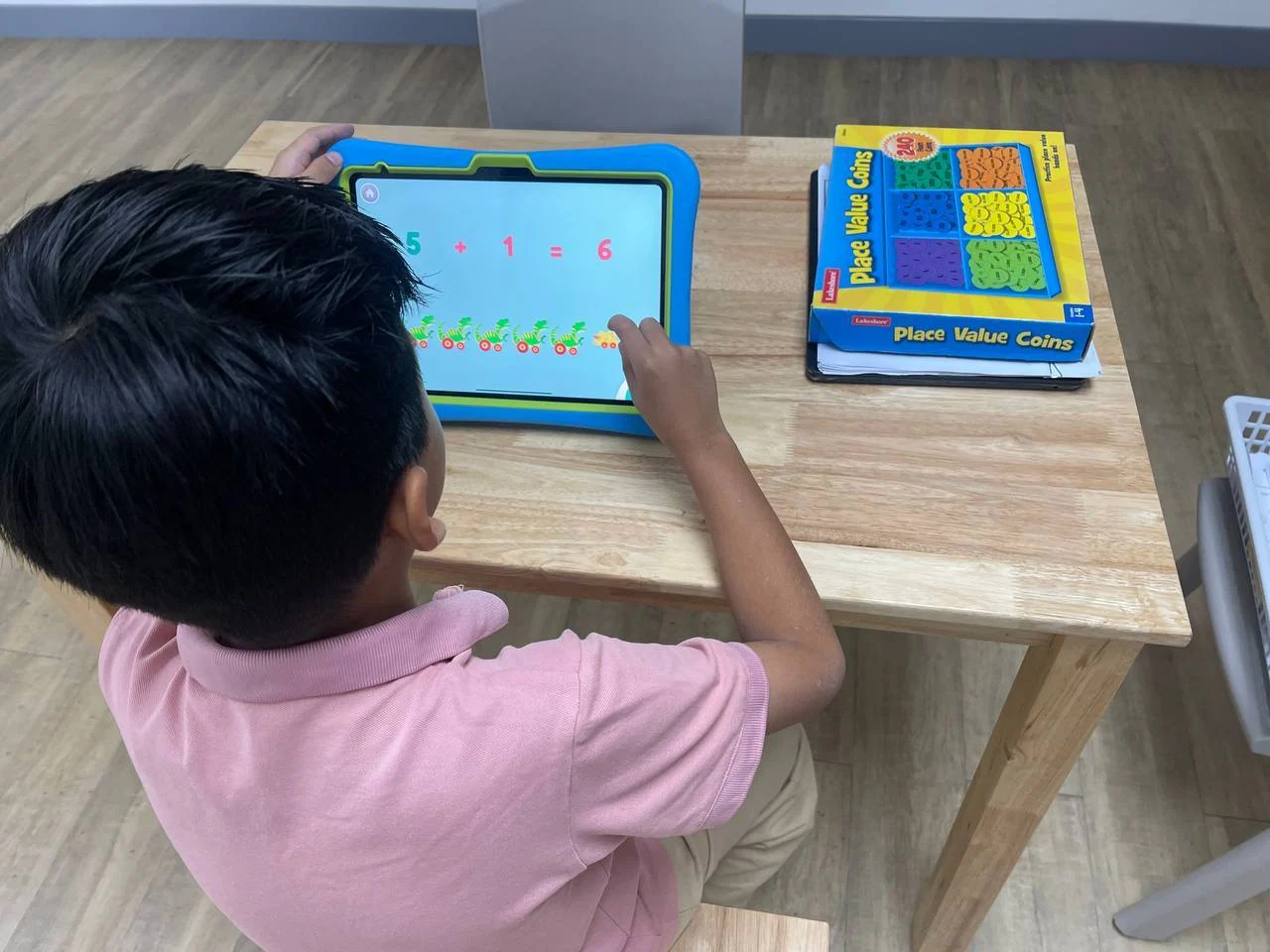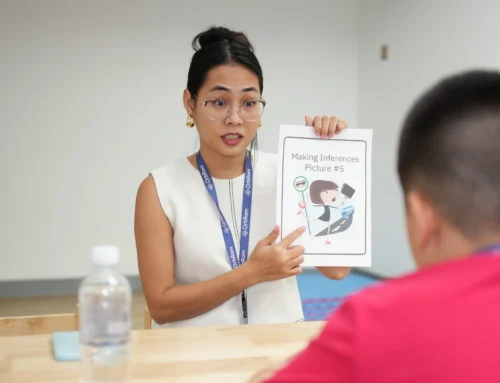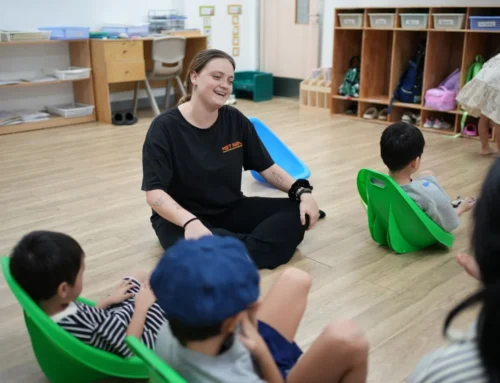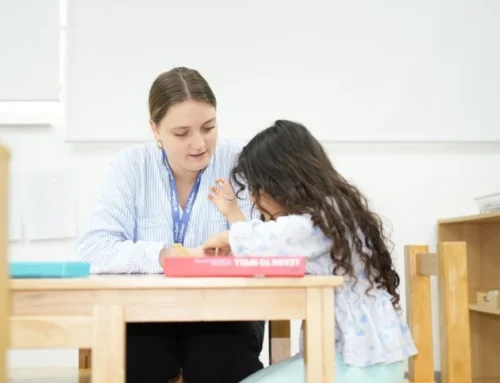Doing math on tablet using Khan Academy Kids gives children a fun, structured path to build number sense and early problem-solving skills. At OrbRom Center, we blend this digital practice with hands-on math activities to help young learners move from counting objects to understanding number relationships. When families ask about screen time, we emphasize intentional use—short, focused sessions that connect directly to real-world learning.
Supporting Early Numeracy Through Play
Doing math on tablet using Khan Academy Kids provides interactive models, instant feedback, and visual explanations. This benefits children who learn best through seeing and touching. Cute characters guide tasks like addition, counting, and comparing quantities, making practice feel playful rather than pressured. When paired with simple real-life math routines—counting toys, sorting objects, or grouping snacks—children begin to understand what numbers mean beyond the screen.
For families and teachers seeking more structured approaches, resources like numeracy for children with special educational needs and playful math tasks such as LEGO counting activities can reinforce these tablet lessons. Many students build confidence when they see the same skill presented in multiple engaging formats.
From Visual to Abstract Thinking
The strength of doing math on tablet using Khan Academy Kids lies in gradually shifting children from pictures to number sentences. Games show groups of objects first, then the matching numerals. This allows them to learn addition and comparison with fewer barriers. Concepts like place value become easier when children begin by moving virtual counters and then apply this skill with physical tools like coins or blocks.
If a child continues to struggle with early numeracy, difficulty recognizing amounts, or feels anxious about math, it may indicate a learning difference. You can learn more about dyscalculia here:
• https://orbrom.com/dyscalculia-learning-disability/
We also share guidance for supporting diverse learners:
• https://orbrom.com/strategies-teaching-math-students-with-learning-disabilities/
These mild challenges are common, and early support makes a significant difference.
Supporting Focus and Coordination
Short routines—5 to 10 minutes daily—help children focus without overwhelm. Some learners benefit from visual timers or movement breaks between tablet tasks. When attention, coordination, or sensory needs create barriers, Occupational Therapy at OrbRom Center can help children stay regulated, strengthen fine-motor skills, and improve visual-motor abilities important for writing and math.
If questions arise about your child’s learning profile, our team can guide you through appropriate assessments and create an individualized plan.
Practical Tips for Parents
-
Pair app practice with real counting tools at home.
-
Let your child “teach you” how they solved a problem.
-
Use consistent language around number stories.
-
Celebrate progress, not perfection.
Doing math on tablet using Khan Academy Kids is a simple way to strengthen number foundations. With intentional teaching, playful tools, and the right support, every child can grow confident in early math.
We are the only Preschool specialized on children with special needs in PhnomPenh.
- Internationally qualified teachers
- Cambodia’s largest sensory room
- Outdoor swimming pool
- Covered outdoor playground
📞 Phone: 077.455.993
Telegram Link: https://t.me/OrbRom






